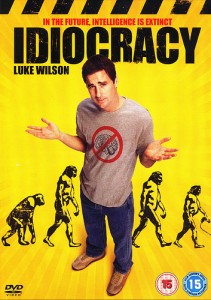In summer 2008, Nicholas Carr wrote a poignant and thought-provoking article, asking the question “Is Google Making Us Stupid?”. The article explored the idea that the Internet, as it becomes our primary means of accessing information, is affecting our ability to focus on any one task that requires deep concentration, such as reading a book. Carr laments that as he spends more and more time online, he has had trouble reading more than a few pages of a book anymore, and anecdotal evidence from his friends and acquaintances seems to support the hypothesis.
In May of 2010, Carr released a book called The Shallows: What the Internet is Doing to Our Brains, which explored the ideas of his Google article in much more detail.
To fully understand what the Internet is doing to our brains, we must first understand our brains. Carr highlights results from a variety of iconic and more recent studies that illustrate the plasticity of our thinking organs. We see experiments ranging from the severed sensory nerves of monkeys’ hands in the 1960’s (and their brains subsequent ‘rewiring’ in response) to London taxi drivers whose posterior hippocampuses (the “part of the brain that plays a key role in storing and manipulating spatial represenations of a person’s surroudings”) were much larger than normal. In short, we see plenty of evidence that the brain can reorganize itself, and is certainly not fixed in one state for all of its adult life.
The Shallows then explores the history of the written word and its explosion due to Gutenberg’s invention, and even further back to the argument between Socrates and Plato concerning the value of the written word. Socrates argued that if we committed all of our thoughts to paper, we would not have to remember anything. How do we know this? From the writings of Plato, of course. The soundwaves of Socrates’ voice, as wise as he was, cannot travel through time like written words can.
With the first half of the book detailing the brain’s plasticity and our species’ history with regards to the accumulation of knowledge, Carr sets up the latter half of the book perfectly, and his ideas might be grossly simplified into something like this:
P1: Experiments of brain plasticity have proven that our brains change over time.
P2: We are using the Internet for an increasing amount of our activities, including work, entertainment and commerce.
P3: The Internet is a medium that encourages distractedness and makes our brains inept at remembering.
C: We are all becoming a lot more dependent upon our digital devices, and in doing so, are increasingly distracted in everything we do, both online and off.
As I was reading this book, I was reminded many times of Mike Judge’s criminally underrated futuristic comedy, Idiocracy. Starring Luke Wilson, the film tells the tale of a mediocre Army librarian who is frozen in a top-secret military experiment. He awakens 500 years in the future to find that he is the world’s smartest man, by far, as confirmed by an IQ test. This seems to contradict the controversial Flynn effect, which shows that IQ has increased quite linearly over time from when it was first measured until now.
Somewhere, something went wrong, as the rising IQ scores of the Flynn effect are nowhere to be seen in Mike’s Judge’s depiction of Earth in 2505, which is a greatly dumbed down dystopian version of the world we knew in 2005. The oversaturation of cheap media (in the form of oddly familiar YouTube-esque videos), and rampant anti-intellectualism have resulted in what Wikipedia describes as “a uniformly stupid human society devoid of individual responsibility or consequences”. Adventure ensues, as our protagonist soon meets The President of the United States of America, who just so happens to be a former porn star and professional wrestler named Dwayne Elizondo Mountain Dew Herbert Camacho. This zany, satirical look at the future certainly has its moments, and offers a bleary look into our dumbed down future.
Carr’s book is a giant caution sign on the side of the road that we ride into the increasingly digital future. The caution sign might be too far behind us already, as we’ve blazed ahead and rewired our minds to think like computers – logical, task-switching, and distracted at every second of the day. If people in their 30’s and 40’s (who may have had the Internet for approximately 25-40% of their life times) are experiencing these changes in their brains, imagine the effect the Internet is having on our youth. The Net Generation is defined to be those who have grown up with the Net for more than half their lives. There are still others who have had Internet for 100% of their life times. Imagine that, never knowing a world without the Internet. Imagine explaining to your grandchildren that you grew up in a time that didn’t have the Internet, let alone the information organizing superpower known as Google.
Will we look back at this period of transition from a print to digital culture and see it as being as momentous as the shift from an oral culture to a print culture? What would Socrates have thought? Have we become lesser human beings, inextricably tied to the addictive external memories of our computers and mobile phones?
Could it be that George W. Bush’s infamous “the Internets” quote was just a sign of the stupidness to come? Perhaps Bush was ahead of his time. Perhaps the Flynn effect is about to come to a crashing halt, as IQs peak, or maybe they already have. Could the greatest learning tool ever created be so useful that we forget how to think as we use it?

